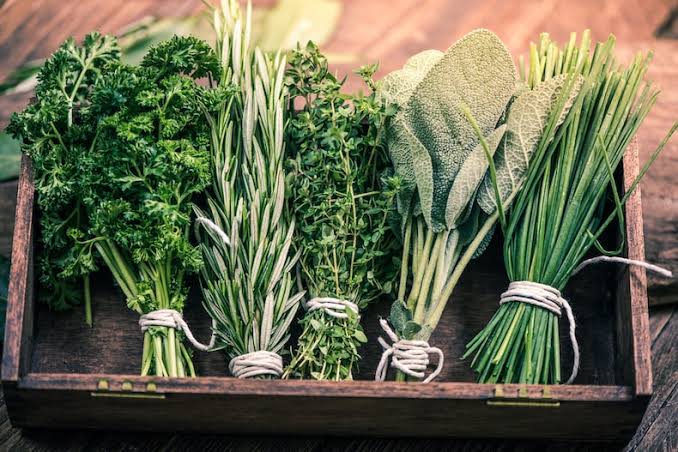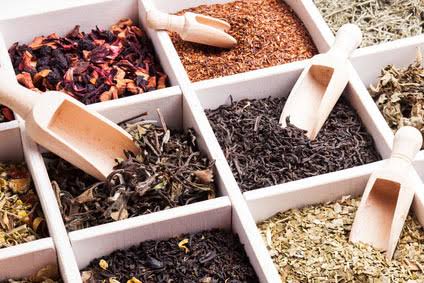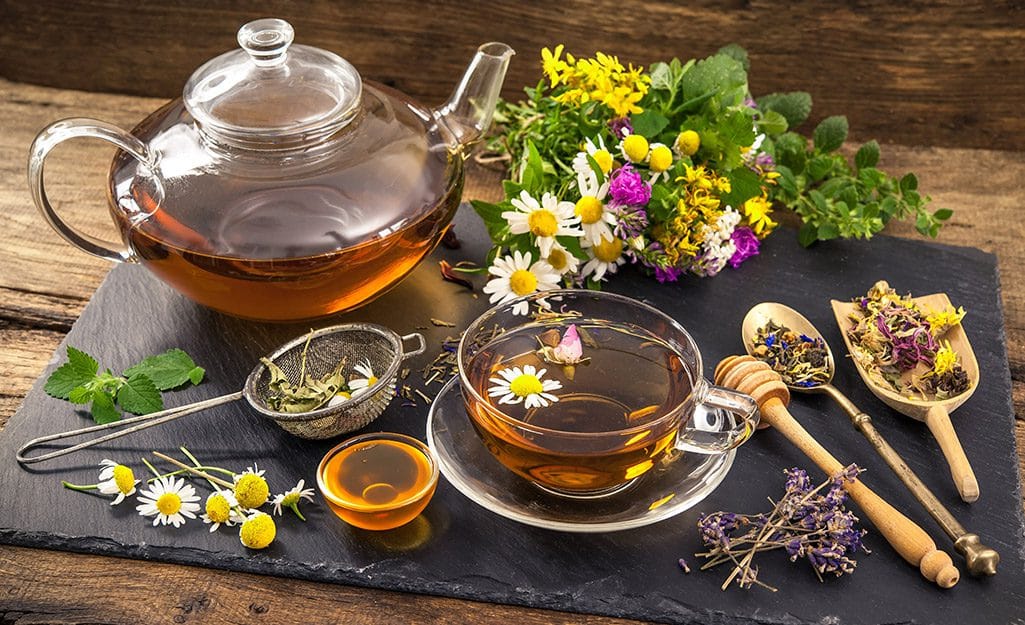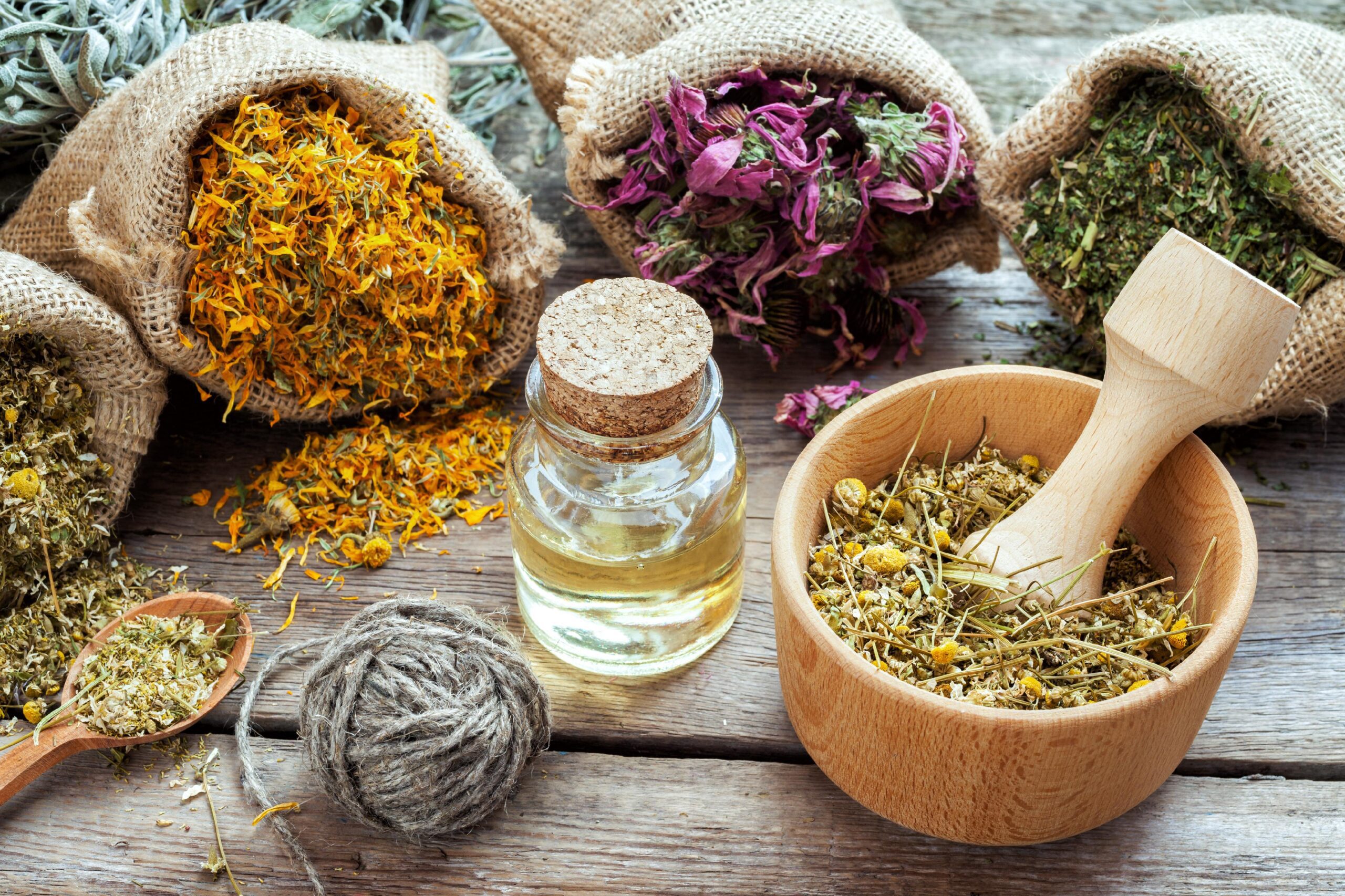Herbs are special plants that people have used for many, many years. These plants have leaves, stems, and seeds that we can use in our cooking, medicine, and even for making our homes smell nice. One of the most popular herbs is basil. It’s a green plant with soft leaves, and it smells so good! People love to add basil to their pasta sauce or sprinkle it on top of pizza. It makes the food taste delicious and fresh.
Another herb that many folks enjoy is mint. Mint has leaves that are a bright green color and a very strong smell. You can make a tasty tea with mint leaves, or you can use it as a garnish for desserts. Mint can also freshen up your breath when you chew on its leaves.
Rosemary is an herb that looks like tiny needles on a small branch. It has a strong, earthy scent and is often used in roasts and grilled meats. Sprinkling a bit of rosemary on your chicken can make it taste wonderful.
Parsley is a leafy green herb with curly or flat leaves. People use it to make dishes look pretty, like a decoration. But it’s not just for looks; parsley adds a nice, fresh flavor to many recipes, such as salads and soups.
Thyme is a small herb with tiny leaves. It smells earthy and a bit sweet. People use thyme to season their food, especially when making stews or roasted vegetables. It gives dishes a warm and cozy taste. Chives are like little green tubes. They have a mild onion flavor and can be chopped up and added to salads or mashed potatoes for a mild, tasty kick.
Oregano is a green herb with a strong, spicy smell. It’s often used in Italian dishes like pizza and pasta sauces. A pinch of oregano can make your homemade pizza taste just like it’s from a fancy pizzeria.
Sage is a grayish-green herb with a unique, savory taste. It’s famous for its role in holiday dishes like stuffing. Sage gives these dishes a warm and comforting flavor. Coriander has leaves known as cilantro and small, round seeds. The leaves have a fresh, citrusy taste, while the seeds are used as a spice in various cuisines.
Dill is an herb with feathery leaves and a refreshing, tangy flavor. People use it to flavor pickles and fish dishes, giving them a bright and lively taste. Herbs aren’t just for cooking; they can also be used as natural remedies. For example, chamomile is an herb that can be made into tea to help relax and soothe you before bedtime. Ginger is another herb that can ease an upset stomach.
In addition, herbs are amazing plants that bring flavor and fragrance to our lives. They make our food taste better and can even help us feel better. So next time you see some herbs, try adding a little to your meal and enjoy the delicious difference they can make. Herbs are simple, but they can do wonderful things.
Read Also: Siamese Cats: All You Need to Know About Them
16 Health Benefits of Herbs

Herbs are not only used to add flavor to your dishes but can also offer various health benefits. Here are 16 health benefits of herbs:
1. Rich in Antioxidants: Many herbs are packed with antioxidants that help protect your cells from damage caused by free radicals.
2. Anti-Inflammatory Properties: Herbs like turmeric, ginger, and rosemary have anti-inflammatory properties that can help reduce inflammation in the body.
3. Digestive Aid: Mint, ginger, and fennel are known for their digestive benefits, helping to soothe an upset stomach and improve digestion.
4. Improved Heart Health: Herbs like garlic and basil can help lower blood pressure and reduce the risk of heart disease.
5. Immune System Support: Herbs like echinacea and elderberry can boost your immune system and help you fight off infections.
6. Stress Reduction: Lavender and chamomile are known for their calming effects, helping to reduce stress and anxiety.
7. Pain Relief: Herbs like arnica and cayenne can be used topically to relieve pain and inflammation.
8. Better Sleep: Valerian root and passionflower are herbs that can promote better sleep and combat insomnia.
9. Weight Management: Some herbs like green tea can boost metabolism and aid in weight management.
10. Skin Health: Aloe vera and calendula are herbs known for their skin-soothing and healing properties.
11. Respiratory Health: Herbs like thyme and eucalyptus can help relieve respiratory issues such as coughs and congestion.
12. Antibacterial Properties: Herbs like oregano and garlic have natural antibacterial properties that can help fight infections.
13. Liver Detoxification: Dandelion and milk thistle are herbs that support liver health and detoxification.
14. Blood Sugar Control: Cinnamon and fenugreek are herbs that may help regulate blood sugar levels.
15. Anti-Cancer Properties: Some herbs like turmeric and green tea contain compounds that have been linked to cancer prevention.
16. Better Cognitive Function: Rosemary is believed to improve memory and cognitive function.
It’s important to note that while herbs can offer these health benefits, they should be used in moderation and as part of a balanced diet. Always consult with a healthcare professional before using herbs as a form of treatment, especially if you have any underlying health conditions or are taking medication.
Bitter Herbs
Bitter herbs are a type of plant that taste, well, bitter! These herbs are known for their strong, pungent flavor that can sometimes be an acquired taste. They have been used for centuries in various cultures for both culinary and medicinal purposes.
One of the most well-known bitter herbs is dandelion. You might have seen those yellow flowers in your yard and thought they were just weeds, but they are actually a nutritious bitter herb. Dandelion greens can be eaten in salads and are packed with vitamins and minerals that are good for your health.
Another bitter herb you might have heard of is arugula. It’s often used in salads to add a peppery, bitter kick to the flavor. Arugula is also rich in antioxidants, which can help protect your body from damage caused by free radicals.
Bitter herbs are not only used in salads but also in cooking. For example, cilantro is a common herb in Mexican cuisine that has a bitter taste. It’s often used in salsas and guacamole to add a fresh, tangy flavor.
In some cultures, bitter herbs are used as a digestive aid. They are believed to stimulate the production of digestive juices, which can help with digestion after a heavy meal. This is why you might find bitter herbs like gentian and wormwood in herbal bitters and liqueurs.
Bitter herbs are also used in traditional medicine. For example, in traditional Chinese medicine, bitter herbs like bitter melon are used to help balance the body’s energy and treat various health conditions. Similarly, in Ayurvedic medicine, bitter herbs like neem are used for their cleansing and detoxifying properties.
It is very important to note that while bitter herbs have many potential health benefits, they are not for everyone. Some people may find the taste of bitter herbs too strong or unpleasant. If you’re new to bitter herbs, you can start by incorporating them into your diet in small amounts and gradually build up your tolerance.
However, bitter herbs may have a strong and sometimes acquired taste, but they offer a wide range of culinary and medicinal benefits. From dandelion greens to arugula, cilantro to gentian, these herbs have been used for generations to add flavor to dishes and promote health and well-being. So, don’t be afraid to give bitter herbs a try and discover the unique flavors and potential health benefits they have to offer.
Read Also: Cats and Rabbits can be Friends
Herbs for Sleep

Getting a good night’s sleep is essential for our overall health and well-being. If you’re struggling with insomnia or poor sleep quality, you might be interested in exploring natural remedies, including herbs, to promote better sleep. Here are some herbs known for their potential to improve sleep:
1. Valerian Root: Valerian is one of the most well-known herbs for sleep. It has been used for centuries to help with insomnia and anxiety. Valerian root can be taken in various forms, including teas, capsules, or tinctures.
2. Chamomile: Chamomile is a popular herb often consumed as a soothing tea before bedtime. It contains antioxidants and compounds that can promote relaxation and reduce anxiety, making it easier to fall asleep.
3. Lavender: Lavender is known for its pleasant fragrance, which has a calming effect. You can use lavender essential oil in a diffuser or add a few drops to your pillow to help you relax and sleep better.
4. Passionflower: Passionflower is a vine known for its calming effects. It’s often used to treat anxiety, which can be a significant factor in sleep disturbances. Passionflower can be consumed as a tea or taken in supplement form.
5. Lemon Balm: Lemon balm is a member of the mint family and is known for its mild sedative properties. It can be used as a tea or taken as a supplement to reduce anxiety and improve sleep.
6. Ashwagandha: Ashwagandha is an adaptogenic herb that helps the body adapt to stress. By reducing stress and anxiety levels, it can indirectly improve sleep quality.
7. California Poppy: California poppy is often used as a mild sedative and can be helpful for those experiencing difficulty falling asleep due to restlessness or nervous tension.
8. Hops: Hops, commonly known for their use in brewing beer, have a mild sedative effect. They are sometimes used in herbal sleep remedies in the form of tea or capsules.
9. Skullcap: Skullcap is an herb that can help calm the nervous system and reduce anxiety, which can contribute to better sleep.
10. Kava Kava: Kava kava is used in some cultures as a remedy for anxiety and insomnia. It can be consumed as a tea or taken in supplement form, but it should be used cautiously due to potential side effects.
When using herbs for sleep, it’s essential to consult with a healthcare professional, especially if you have underlying health conditions or are taking medications. While herbs can be a valuable addition to your sleep routine, they may not work for everyone, and their effectiveness can vary from person to person. Additionally, lifestyle factors like a consistent sleep schedule, a comfortable sleep environment, and stress management techniques should also be considered alongside herbal remedies for better sleep.
Tea Herbs

Tea is one of the world’s most beloved beverages, enjoyed for its soothing properties, diverse flavors, and potential health benefits. While traditional teas like black, green, and oolong are made from the leaves of the Camellia sinensis plant, there is a wide variety of herbal teas, often called “tisanes,” made from various herbs, flowers, fruits, and spices.
Here are some popular tea herbs and their unique flavors and potential health benefits listed for you:
1. Peppermint: Peppermint tea is well-known for its refreshing and invigorating flavor. It can help soothe digestive discomfort, alleviate headaches, and promote relaxation.
2. Chamomile: Chamomile tea is famous for its mild, apple-like flavor and calming effects. It’s often used to relax before bedtime and soothe digestive issues.
3. Lavender: Lavender tea has a delicate floral flavor and is known for its relaxing and stress-reducing properties. It can aid in promoting better sleep and reducing anxiety.
4. Ginger: Ginger tea is spicy and warming, making it excellent for easing nausea, reducing inflammation, and supporting digestion.
5. Hibiscus: Hibiscus tea has a tart, cranberry-like flavor. It’s packed with antioxidants and vitamin C and can help lower blood pressure and promote overall health.
6. Lemon Balm: Lemon balm tea has a mild lemony taste and is valued for its calming and mood-boosting effects. It’s often used to reduce stress and anxiety.
7. Nettle: Nettle tea is made from the leaves of the stinging nettle plant. It’s known for its earthy, slightly grassy flavor and is rich in vitamins and minerals.
8. Rosehip: Rosehip tea has a fruity, floral flavor and is exceptionally high in vitamin C. It’s known for its immune-boosting properties.
9. Echinacea: Echinacea tea is made from the echinacea plant and is often used to support the immune system and alleviate symptoms of the common cold.
10. Lemongrass: Lemongrass tea has a fresh, citrusy taste and is used for its digestive benefits and as a natural remedy for colds and fevers.
11. Dandelion: Dandelion root tea is earthy and slightly bitter. It’s believed to support liver health and aid in digestion.
12. Rooibos: Rooibos tea, also known as red tea, has a naturally sweet and nutty flavor. It’s caffeine-free and rich in antioxidants, making it a popular choice for those looking for a caffeine-free alternative.
13. Peppermint: Peppermint tea is well-known for its refreshing and invigorating flavor. It can help soothe digestive discomfort, alleviate headaches, and promote relaxation.
14. Thyme: Thyme tea has a savory, herbal flavor and is often used to soothe sore throats, coughs, and respiratory issues.
These are just a few examples of the many herbs and botanicals used to create herbal teas. Each herb brings its unique flavor profile and potential health benefits to your cup. Experiment with different combinations to discover your favorite tea herbs and enjoy the soothing and therapeutic qualities they offer.
Witchcraft Herbs
In various cultures and belief systems, herbs have been used for centuries in rituals, spells, and practices associated with witchcraft and magic. These herbs are often chosen for their symbolic and spiritual significance, as well as their purported magical properties.
Here are some commonly used witchcraft herbs and their associations:
1. Lavender: Lavender is often associated with love, relaxation, and purification. It’s used in spells and rituals for calming energy, sleep, and attracting love.
2. Rosemary: Rosemary is linked to protection, purification, and memory enhancement. It’s used to ward off negative energy and enhance mental clarity.
3. Sage: Sage is a well-known herb for cleansing and purifying spaces. It’s often used in smudging rituals to remove negative energy.
4. Mugwort: Mugwort is believed to enhance psychic abilities and lucid dreaming. It’s used in divination and dreamwork.
5. Thyme: Thyme is associated with courage and strength. It can be used in spells related to empowerment and healing.
6. Mistletoe: Mistletoe is linked to fertility, love, and protection. It’s often used in love spells and rituals during the winter holidays.
7. Yarrow: Yarrow is associated with divination and psychic awareness. It’s believed to enhance one’s intuitive abilities.
8. Cinnamon: Cinnamon is used for prosperity, success, and protection. It’s often included in money-drawing spells and rituals for good luck.
9. Basil: Basil is associated with love and wealth. It’s used in spells for attracting love and abundance.
10. Patchouli: Patchouli is linked to passion, love, and sensuality. It’s often used in love spells and rituals to attract a specific person.
11. Frankincense: Frankincense is used for purification, protection, and spirituality. It’s often included in rituals and meditation practices.
12. Myrrh: Myrrh is associated with healing and spirituality. It’s used in rituals for purification and meditation.
13. Dragon’s Blood: Dragon’s blood resin is used for protection and power. It’s often used to enhance the potency of spells and rituals.
14. Wormwood: Wormwood is associated with divination and enhancing psychic abilities. It’s used in rituals to connect with the spirit world.
15. Clove: Clove is linked to protection and banishing negative influences. It’s used in spells to remove obstacles.
It is important to note that the use of herbs in witchcraft is highly symbolic and varies among practitioners. Additionally, the spiritual and magical properties attributed to herbs are based on folklore, tradition, and personal belief rather than scientific evidence. When working with herbs for magical or spiritual purposes, it’s crucial to do so with respect, mindfulness, and intention. Always try to exercise caution and ethical responsibility in your practices.
Read Also: 7 Secrets to Quickly Grow Your Business

